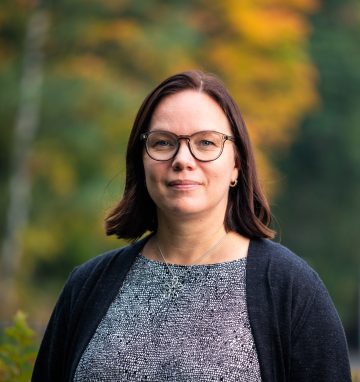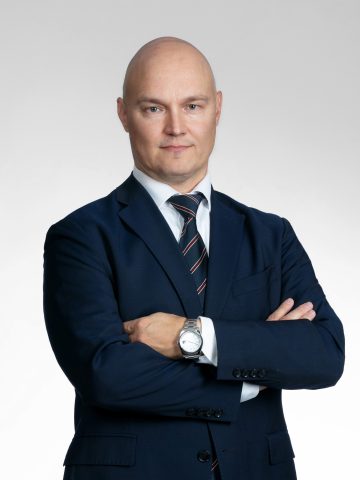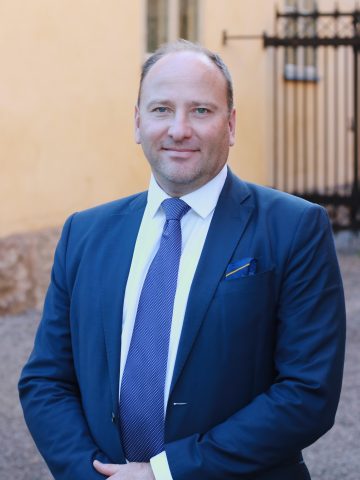Resilience of regional water services

Mirva Levomäki
CEO
Turku Region Wastewater Treatment Plant Ltd.
Finland
mirva.levomaki@turunseudunpuhdistamo.fi

Aki Artimo
CEO
Turku Region Water Ltd.
Finland
aki.artimo@turunseudunvesi.fi

Björn Grönholm
Director
City of Turku
Finland
bjorn.gronholm@turku.fi
Many countries and societies are under severe stress due to unsecure energy supplies. Problems with energy supplies are influencing many critically important societal services. For local authorities these problems have now become concrete. Sustainable, high quality and safe solutions for maintaining water services have been a central focus in the Turku region for many years. Today, with more than ten years of experience the City of Turku can present a water management model that is energy positive. The water management in Turku is situated mainly underground in safe and stable conditions. This water management model is transferable and attractive for other countries and societies that wish to end the dependence of fossil fuels.
The water management model is operated by two companies: Turku Region Water Ltd and Turku Region Wastewater Treatment Plant Ltd are wholesale companies owned by the municipalities in the Turku economic region. These companies offer efficient and high-quality water supply services for the 300,000 residents and industries in the Turku economic region. These companies use strategic and operational measures to secure the continuity of water supply, even in exceptional circumstances.
Sustainable and resilient drinking water production
Turku Region Water Ltd produces zero emission energy from the drinking water production. The artificially infiltrated groundwater produced, is pipelined by gravitation from the managed aquifer recharge (MAR) plant into underground reservoirs in the Turku area. The turbine slowing down the flow of drinking water produces most of the electricity needed for the UV-disinfection and for the pumping from the bedrock reservoirs to consumers. The electricity produced by the turbine can be compared to the energy needed for 100 houses of 4 person households or 1000 flats of 2 person households.
In addition, a solar panel system has been connected to the Turku Region Water pre-treatment plant. The pre-treatment plant is the most energy consuming unit in the water production system and the solar panel system, which includes over 1300 panels, produces part of the energy needed.
– “We ensure a sustainable and ecological water production and delivery. In fact, our production capacity can respond to a bigger demand in the future. The production of artificially recharged groundwater requires only a fraction of the chemicals used in traditional drinking water facilities. It enhances the natural yield of groundwater without any negative impact on water quality or the natural flow of groundwater” states Aki Artimo, CEO of Turku Region Water Ltd.
The MAR method is part of a multi-barrier system, which prevents the contamination of drinking water from source to tap. The MAR plant and other vital parts of the systems are also equipped with backup power generators. In case the MAR plant would be out of order, a backup waterworks plant is set in action.
– “We are constantly developing the system and strengthening our resilience. We are also happy of the recognition in the book ”Managing Aquifer Recharge – A Showcase for Resilience and Sustainability” published by Unesco 30.11.2021, which highlights that the MAR plant has been planned honoring the sustainability of nature with best available technology, and that the quality of the water we produce is rated among the best in the world.” adds Aki Artimo.
Energy efficient and carbon footprint reducing wastewater treatment services
The Turku Region Wastewater Treatment Plant Ltd. is operating the underground Kakolanmäki treatment plant which runs in stable conditions throughout the year. The company develops its operations based on risk management as a continuous process. Moreover, the company takes into account the carbon footprint as well as the lifecycle of the operation, which in turn supports climate resilience. Resources are optimized considering economic, ecologic and quality resources, while securing the maintenance in all conditions.
The heat of the wastewater is utilized in cooperation with the local energy company for district heating and district cooling. Municipal sewage sludge is utilized as a source for liquefied biogas (LBG) and the nutrients are recycled for recovery. In addition, the treatment plant produced its own energy by making use of e.g. heat recovery, turbines and solar panels.
– “Additionally important is that the wastewater is treated to a very high standard, which promotes the wellbeing of the Baltic Sea”, says Mirva Levomäki, CEO of Turku Region Wastewater Treatment Plant Ltd.
The carbon footprint of the wastewater treatment plant, including the utilization of sludge in the biogas plant and the utilization of thermal energy of wastewater, is negative, i.e. beyond carbon neutral. For the moment, the treatment plant complex produces about ten times more energy than it consumes. District heating and cooling systems benefit from the energy surplus of wastewater treatment.
Expert article 3328
>Back to Baltic Rim Economies 5/2022
To receive the Baltic Rim Economies review free of charge, you may register to the mailing list.
The review is published 4-6 times a year.
